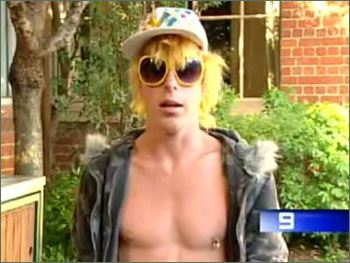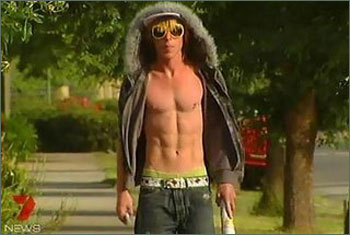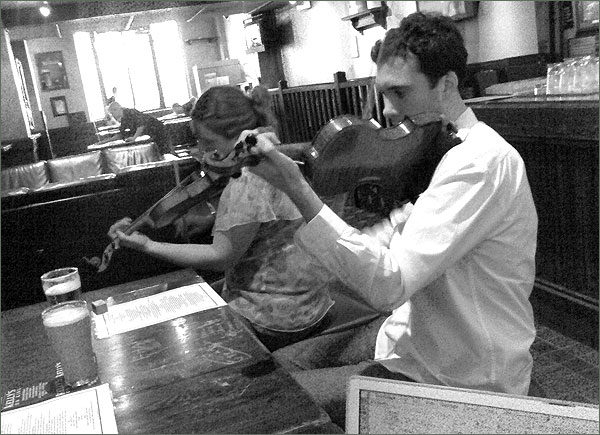
I’m pretty sure I know why my story about “protecting kids on the Internet” was bumped from Crikey today. How can I possibly compete with a newsmaker like Corey Worthington Delaney (pictured)? And how can I possibly compete with Crikey‘s comprehensive coverage of this new Australian success story?
It’s not so much about protecting kids from the Internet, but protecting the Internet (and us!) from Corey.
Any promoter would be pleased with a turnout of 500 for a simple house party with no outlays, just an invite sent out on MySpace. But then a helicopter arrived on the scene, some police cars got damaged, Mr and Mrs Delaney found out, the neighbours were p-ssed off and the Police Commissioner called a press conference.
It looked like Corey was set to be devoured by a salivating news pack. The sixteen-year-old came with shades, a naked friend running down the street, a pink doona doubling as sarong, and the quote “I can’t remember. I was just off my head”.
Crikey lists much of the good media coverage — including a talkback caller who somehow managed to blame John Howard. For me, though, the highlights are The 7.30 Report‘s serious piece (including child psychologist and police youth worker), and A Current Affair‘s Leila McKinnon doing the extended interview (where they get his name wrong).
The irony is, today the Victorian claim their tougher new powers to target rowdy behaviour around Melbourne nightspots have been a great success.
[Update 16 January 2005: I’ve changed Corey’s surname from “Delaney” to “Worthington”. Apparently Delaney is his parents’ surname but not his. Or something.]





